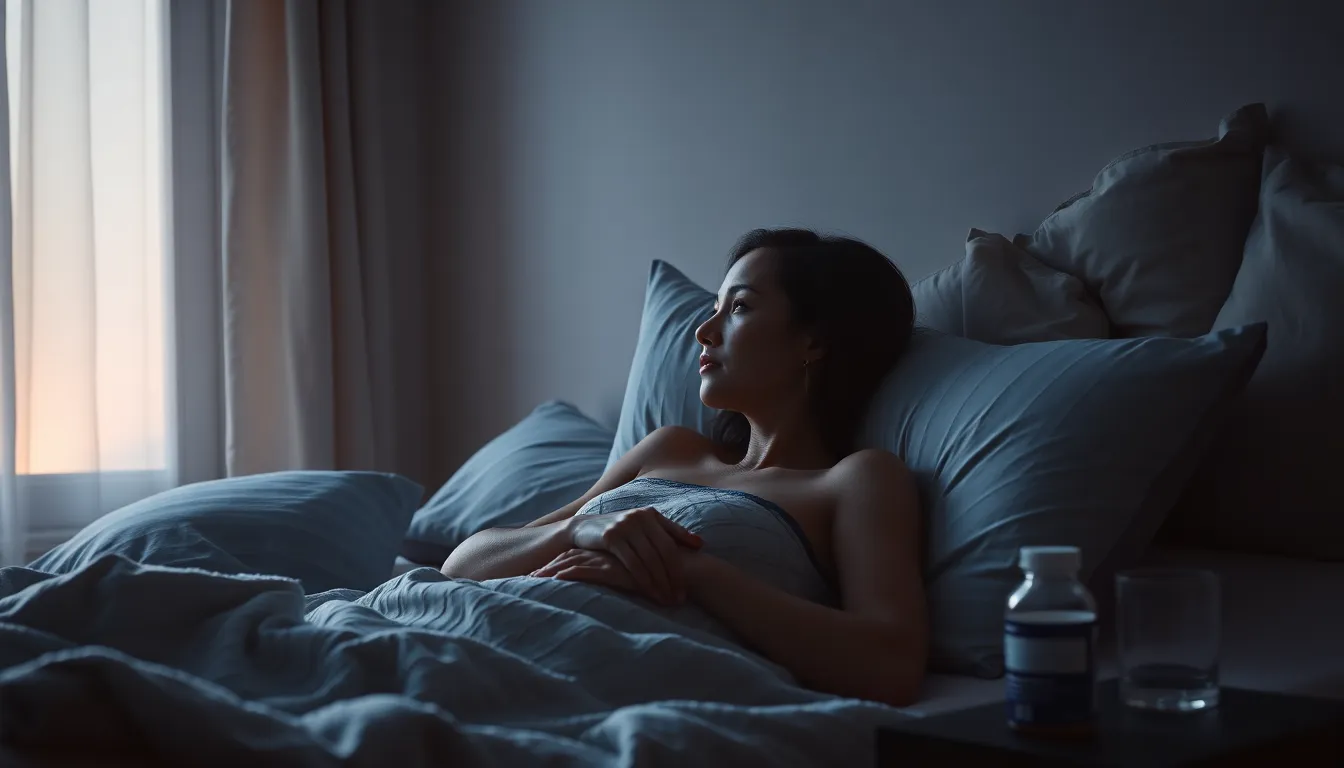Many people turn to melatonin as a natural sleep aid, especially after a night of drinking. With its reputation for promoting relaxation and improving sleep quality, it’s no wonder that questions arise about the safety of combining melatonin with alcohol. Understanding the potential effects of this combination is crucial for anyone looking to enhance their sleep experience.
Alcohol can disrupt the body’s natural sleep cycle, leading to restless nights and groggy mornings. This raises the question: can melatonin effectively counteract those effects? While some might think that taking melatonin after drinking could help, it’s essential to consider how these substances interact. Exploring the science behind melatonin and alcohol will shed light on whether this combination is a safe choice or if it poses risks to overall health and well-being.
Table of Contents
ToggleOverview Of Melatonin
Melatonin is a hormone produced by the pineal gland in the brain. It regulates sleep-wake cycles, known as circadian rhythms. The body typically releases melatonin in response to darkness, signaling it’s time to sleep. Supplementation has become common for individuals experiencing sleep disorders, such as insomnia.
Melatonin supplements are available in various forms, including tablets, gummies, and liquids. Doses generally range from 0.5 mg to 10 mg, with lower doses often recommended for sleep onset. The timing of melatonin intake is critical; taking it 30 to 60 minutes before bedtime promotes its effectiveness.
Potential side effects of melatonin use include drowsiness, headaches, dizziness, and nausea. These effects may vary based on dosage and individual tolerance. Long-term use of melatonin isn’t well studied, raising questions about its safety with prolonged consumption.
The interaction between alcohol and melatonin remains a concern. Alcohol disrupts normal sleep patterns, potentially diminishing the effectiveness of melatonin. Understanding this interaction is crucial for those considering melatonin use after alcohol consumption.
Effects Of Alcohol On Sleep

Alcohol significantly influences sleep, often leading to fragmented sleep patterns and reduced overall sleep quality.
How Alcohol Affects Sleep Patterns
Alcohol can induce drowsiness, which may initiate sleep faster, but its effects are short-lived. As the body metabolizes alcohol, it disrupts the sleep cycle, particularly REM sleep, which is essential for restorative processes. Studies show that consuming alcohol before bedtime leads to increased wakefulness during the second half of the night, causing disturbances in sleep continuity. Sleep studies indicate that even moderate alcohol consumption before sleep results in less restful sleep, emphasizing its role in hindering deeper sleep stages.
The Relationship Between Sleep Quality And Alcohol
Sleep quality deteriorates with alcohol consumption due to its sedative effects. Research reveals that individuals who regularly drink before bed experience poorer sleep outcomes, including increased instances of insomnia and reduced sleep efficiency. Alcohol can also exacerbate sleep disorders, leading to prolonged periods of wakefulness or lighter sleep stages. These effects may result in daytime fatigue, impaired cognitive function, and overall decreased well-being. Understanding this relationship underscores the importance of moderating alcohol intake for improved sleep quality.
Can You Take Melatonin After Drinking?
Combining melatonin and alcohol raises safety concerns. Understanding the nuances of this interaction is vital for those considering melatonin after drinking.
Recommendations From Health Experts
Health experts often advise caution when mixing melatonin and alcohol. Doctors suggest avoiding melatonin if alcohol consumption occurred within a few hours. Alcohol can disrupt sleep cycles, and taking melatonin during this period may exacerbate sleep disturbances. Some studies recommend waiting until the alcohol is out of the system—typically 4 to 6 hours post-drinking—before considering melatonin supplementation. Consulting a healthcare provider is essential for personalized guidance, especially for individuals with pre-existing health conditions or those taking other medications.
Potential Risks And Side Effects
Combining melatonin and alcohol poses several risks. Alcohol can impair the effectiveness of melatonin, leading to diminished sleep quality instead of improvement. Users may experience increased side effects like dizziness, drowsiness, and confusion, affecting overall cognitive abilities. Additionally, the risk of developing a dependency on sleep aids may increase when used alongside alcohol. Long-term safety of consistent melatonin use remains uncertain, especially after drinking. Therefore, understanding these potential ramifications is crucial for ensuring sound sleep health.
Alternative Solutions For Better Sleep
Numerous alternatives exist for improving sleep quality without resorting to melatonin, particularly after alcohol consumption. Here are some effective options.
Natural Sleep Aids
Natural sleep aids can support sleep health. Popular options include:
- Valerian Root: This herb may promote relaxation and improve sleep latency. A dosage of 300 to 600 mg, taken 30 minutes to two hours before bedtime, is common.
- Chamomile: Chamomile tea can have a calming effect, aiding in sleep initiation. Drinking a cup of chamomile tea before bed can enhance relaxation.
- Lavender: Known for its soothing aroma, lavender essential oil may improve sleep quality. Inhalation through a diffuser or topical application on pulse points before bedtime is beneficial.
- Passionflower: This herb works to reduce anxiety and improve sleep duration. A typical dosage ranges from 250 to 500 mg before sleep.
Lifestyle Changes To Improve Sleep
- Consistent Sleep Schedule: Going to bed and waking up at the same time daily helps regulate circadian rhythms, promoting better sleep.
- Limited Screen Time: Reducing exposure to screens at least one hour before bedtime minimizes blue light interference, which can disrupt melatonin production.
- Physical Activity: Regular exercise, such as brisk walking or cycling, can promote deeper sleep. Aim for at least 150 minutes of moderate exercise weekly.
- Sleep Environment: Maintaining a cool, dark room can create an optimal sleep environment. Consider blackout curtains and white noise machines for added benefit.
- Avoid Heavy Meals: Eating heavy or spicy meals close to bedtime can lead to discomfort. Eating lighter options and allowing a few hours between dinner and sleep encourages better rest.
Understanding the interaction between melatonin and alcohol is crucial for anyone seeking better sleep quality. While melatonin can be an effective sleep aid for many people it’s essential to consider the potential risks when combining it with alcohol. The negative impact of alcohol on sleep cycles can undermine melatonin’s effectiveness and lead to unwanted side effects.
For those who choose to use melatonin after drinking it’s advisable to wait several hours before supplementation. Consulting a healthcare provider can provide tailored advice and ensure safety. Exploring alternative sleep aids and lifestyle changes can also enhance sleep quality without the complications of combining substances. Prioritizing sleep health is vital for overall well-being and should be approached with informed caution.









